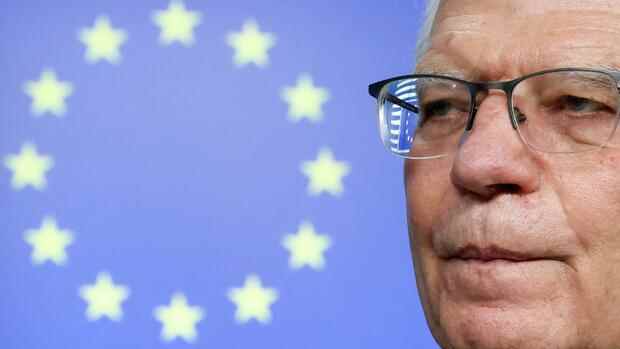The EU is discussing direct sanctions against the Russian oil and gas sector.
(Photo: Reuters)
Brussels Since the Russian attack on Ukraine, it has become an appointment that takes place several times a week: While the EU Foreign Council normally meets about once a month, this Friday was the fourth meeting within a few days.
The Europeans hastily passed numerous sanctions to dry up the government’s war chest in Moscow: for example, the ban on transactions with the Russian central bank and the freezing of its cash reserves, the freezing of the assets of the oligarchs in the EU, and the exclusion of numerous Russian ones Banks from the Swift payment system.
No further sanctions were decided on this Friday, but they will be in the next few days, as EU foreign policy chief Josep Borrell explained after the meeting.
The first priority is to ensure that all sanctions actually work. Specifically, this means rules that make it more difficult to circumvent sanctions through the use of cryptocurrencies such as Bitcoin. “Gaps need to be closed,” Borrell said. And: “These sanctions are intended to undermine Russia’s war machine.”
Top jobs of the day
Find the best jobs now and
be notified by email.
Another measure that the foreign ministers are discussing is one that Germany has so far resisted: direct sanctions against the Russian oil and gas sector.
Russian gas imports will be reduced very soon
Crude oil and natural gas exports have so far been excluded from the EU’s sanctions packages. In the Swift exclusion of Russian banks, the EU made an exception for Sberbank and Gazprombank to continue paying for European gas purchases.
Since Russian gas accounts for 40 percent of gas imports, one cannot do without it overnight, Borrell said. However, it was agreed to accelerate the energy transition in order to reduce dependence on Russian gas and oil.
Nevertheless: “Of course we will reduce imports. We will do that very soon,” announced Borrell. “That is our intention. We will do that.”
There are numerous voices in favor of tougher sanctions for Russia’s gas and oil exports. Because this harms the Russian state budget the most. However, the Europeans would then also have to accept economic damage for themselves – which many capital cities have so far shied away from.
More: Can the EU do without Putin’s gas? A Brussels think tank says yes.
